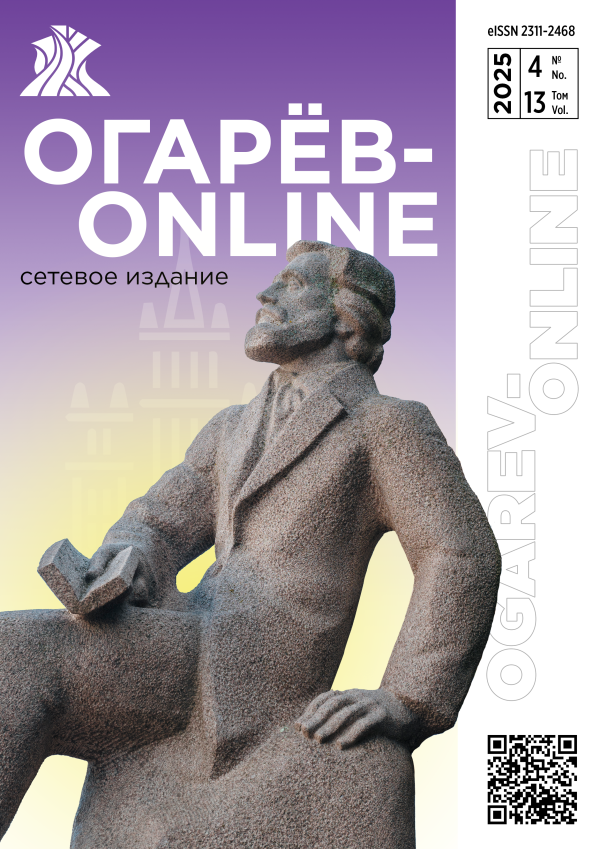Vol 7, No 13 (2019)
- Year: 2019
- Published: 10.11.2019
- Articles: 10
- URL: https://ogarev-online.ru/2311-2468/issue/view/18247
Full Issue
Parade of longreads: visualization of student research projects
Abstract
The article considers the specifics of longread as a new multimedia product. The authors provide its key characteristics, describe the principles of creation, discuss the role of verbal and visual components. The experience of using the longread in the organization of student research activities is described.




Internet censorship: global experience
Abstract
The article deals with the Internet censorship considered as a natural component of power and culture. The experience of Internet censorship in a number of countries is described. Analyzing the changes in censorship practice, peculiarities of the dialogue between the authorities and society on the issues of freedom of speech, the author shows the urgency of the problem in the context of modern information society.


Academic ethics as an element of professional formation of students in the educational process: a study of the institute of national culture at Ogarev Mordovia State University
Abstract
The article discusses the importance of academic ethics in the formation of professional competence of university students. The results of the “Monitoring attendance” survey conducted in April 23–26, 2019 at the Institute of National Culture of Ogarev Mordovia State University were summed up. Brief recommendations are provided for students seeking to improve their punctuality.






Ethnographical potential of Finno-Ugric skansen in the Republic of Mordovia
Abstract
The article considers the ethnographical potential of the Republic of Mordovia in the creation of a Finno-Ugric skansen on the territory of the Volga Federal District. The study provides a comparative analysis of other areas inhabited by the Volga-Finnish and the Permian ethnic groups. The advantages for the creation of a skansen in the Republic of Mordovia are listed.


The activities of the Borisov Central District Library named after I.Kh. Kolodeev in projects of international cultural cooperation
Abstract
The article describes the activities of the state cultural institution "Borisov Central District Library named after I. Kh. Kolodeev" in international cultural projects. The author outlines the ways and forms of the activities and reports on the relevant theatrical, cinema, music, educational events hosted by the library.


Museum in the context of modern sociocultural transformations
Abstract
The article considers the influence of the emerging information society on the functioning of the museum as a sociocultural institution aimed for the preservation and transmission of the historical memory and cultural experience of mankind. The study is focused on reorienting the museum’s activities, particularly on changing its place in the media space, as well as on the challenges experienced by the museum in the process of transformation.



















